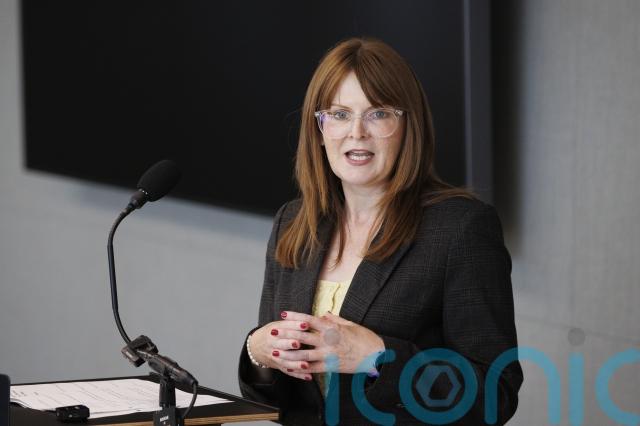
Stormont’s economy minister has ruled out introducing a significant increase to student fees in Northern Ireland.
Caoimhe Archibald, who is responsible for higher education funding in the region, made the announcement in response to a joint call from universities and colleges for a substantial uplift to the current £4,750 cap on fees for local students.
The heads of Queen’s University, Ulster University and the Open University in Ireland had warned that failure to tackle a funding crisis in the sector would force them to cut places for local students, as they insisted the current arrangements are “not sustainable”.
Ms Archibald has now made clear that she will not approve a cap increase beyond the annual inflationary adjustment.
She said placing an additional financial burden on students was not the way to address the pressures facing colleges and universities.
The minister said she would instead urge other Stormont ministers to prioritise the funding of higher education institutions when it comes to the reallocation of uncommitted funds during the current financial year. She said a sum of less than £10 million was required this year.
The Sinn Fein MLA said she was also committed to working with the colleges and universities to find a sustainable “longer-term solution” to the funding issue.
“You will be aware that the universities and university colleges have written to the five main parties highlighting the need for additional funding,” Ms Archibald told reporters at Stormont on Tuesday afternoon.
“There are two ways to provide that additional funding – either by increasing student fees above the usual level of inflation or by finding more public funding.
“I am clear that the current funding model does not work for universities and it does not work for students.
“And skills are a priority for me and my department in meeting the objectives of my economic vision and providing pathways for people of all backgrounds to gain education and training.
“While I recognise the challenges facing universities, I am not prepared to raise fees above the usual level of inflation and push that additional pressure onto students.
“I have therefore written to my Executive colleagues asking for higher education institutions to be prioritised for in-year funding to address the challenges this year.

“I want to work in partnership with our universities and students to find a sustainable way forward, and will work on a longer-term solution as part of the three-year budget (runs from 2026/27) and I’ve already committed to undertaking a review of higher education funding. In my view, this is the best solution for students and higher education institutions.”
In their letter to party leaders earlier this month, the university chiefs acknowledged that any increase in tuition fees agreed by Stormont should not be seen in “isolation”, and they also expressed support for a corresponding rise in the maintenance grant available to students from low-income households.
The letter was endorsed by the principals of Northern Ireland’s two dedicated teacher training colleges, Stranmillis and St Mary’s.
Annual tuition fees for students from the island of Ireland studying in Northern Ireland are currently capped at £4,750.
Students from the rest of the UK who study in Northern Ireland pay up to £9,250. That is the same amount paid by Northern Ireland students studying in universities and colleges in England, Scotland and Wales.
The £9,250 cap is increasing to £9,535 at the start of the next academic year in the autumn.
The Northern Ireland university leaders were not pressing for major structural changes to the current funding model, rather an increase to the fee cap for island of Ireland students to reflect the inflationary pressures of recent years.
Their letter expressed frustration that tuition fee increases in Northern Ireland since 2011 have “consistently fallen below inflation” while costs have “risen dramatically”.
Citing an example, the higher education leaders said if 2021 was taken as a new baseline point to apply retrospective inflationary uplifts, the corrected fee cap would be £5,831.
Subscribe or register today to discover more from DonegalLive.ie
Buy the e-paper of the Donegal Democrat, Donegal People's Press, Donegal Post and Inish Times here for instant access to Donegal's premier news titles.
Keep up with the latest news from Donegal with our daily newsletter featuring the most important stories of the day delivered to your inbox every evening at 5pm.